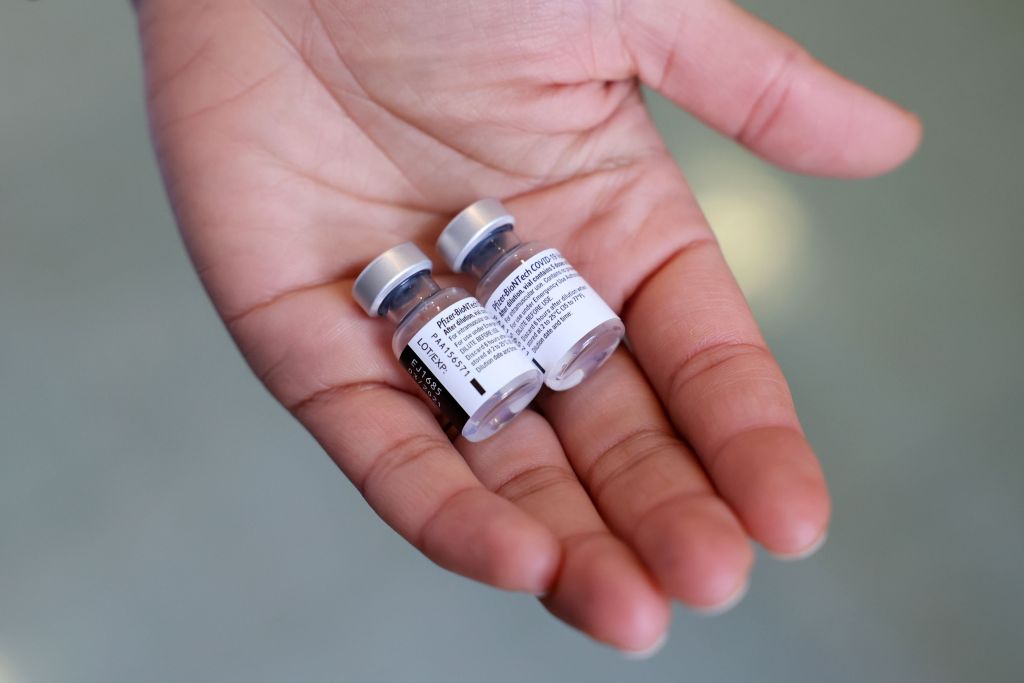
[ad_1]
A substance widely used in products like shampoos and toothpastes may be responsible for severe allergy cases that have been reported in relatively few people who have received the Pfizer coronavirus vaccine, the researchers suspect.
Polyethylene glycol, also known as PEG, covers the nanoparticles in which the mRNA of the Pfizer and Moderna vaccines is packaged to increase the stability and shelf life of the product.
PEG is generally considered safe and is used in a variety of other products as an emollient, solvent, or stabilizer. However, in rare cases, the immune system may mistakenly recognize the substance as a virus and produce antibodies that cause allergic reactions.
According to Science magazine, the issue was discussed at an emergency meeting of the US National Institute of Allergy and Infectious Diseases (NIAID), but experts disagreed on whether PEG was actually responsible for the eight cases of severe allergies that occurred after taking the Pfizer vaccine: six in the US and two in the UK.
Whatever the cause, sensitive people are at risk for anaphylaxis, a dangerous reaction that causes rapid heartbeat, shortness of breath, hypotension and rashes. The reaction occurs quickly, but can be treated relatively easily.
Guidelines from the Centers for Disease Control (CDC) state that the vaccine should not be given to people with a history of allergies to any component of the vaccine. For those who have had a severe reaction to other vaccines or injections, the benefits of the vaccine must be weighed against the risk, the CDC says.
The UK, where the vaccine was approved before being licensed in the EU, advises people with a history of severe allergies not to get vaccinated.
Pfizer, for its part, told Science it was investigating the case. He has also indicated that vaccination centers must be prepared to attend to any case of rash.
Anaphylactic reactions can potentially occur with any vaccine, but are relatively rare with approximately one case per million doses. That proportion appears to be higher in the case of the Pfizer vaccine, as the United States has so far reported six cases among the 272,000 people who have received the vaccine, according to the CDC.
Polyethylene glycol was previously considered chemically inert, but this view seems to be disproved. According to a study from the University of North Carolina published in 2016, up to 72% of people carry antibodies to PEG in their blood, most likely as a result of exposure to cosmetics and pharmaceuticals.
But Pfizer’s PEG vaccine is “orders of magnitude smaller” than other drugs, Science writes.
In any case, the American company Moderna, whose vaccine also contains PEG, had recognized the possibility of “reacting to PEG” in an informative note to its shareholders. And BionTech, the German company that developed the Pfizer vaccine, is looking for alternatives to using PEG in the vaccine.
Although experts disagree on the role of PEG in allergic reactions, all agree that mass vaccination must continue to stop the pandemic.
Those who have a history of severe allergies but are to receive the vaccine with the consent of their doctor should stay at the vaccination center for half an hour, until they are sure they are safe from any anaphylactic reaction.
 at google news and be the first to know all the news
at google news and be the first to know all the news
[ad_2]